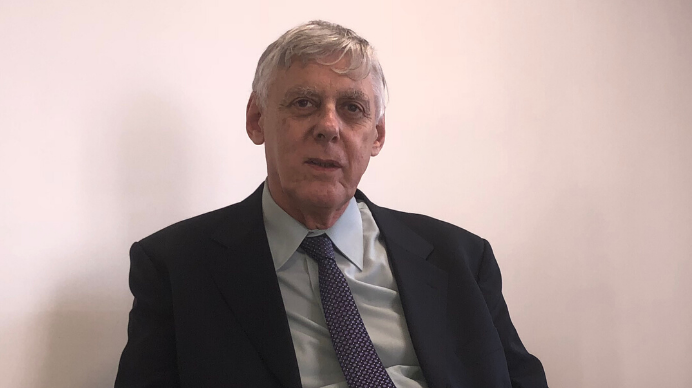
“Within this current life – methodical and dehumanized – lies the physician. And as a simile of current characteristics, he grew up with a strong dose of technique and anthropological inconveniences derived from the environmental conditions in which his art operates.” This is the starting point of an editorial by Prof Jorge Carlos Trainini for the Spanish publication Educación Médica. His thesis, which he presented in an interview two years ago, is that the shift in medicine, focused on becoming a deterministic science, has prioritized the most empirical dimension of the patient. But "since it affects human life, a disease has on its biological dimension another dimension strictly historical."
Madrid - February 25, 2020. The human nature of the object of medical work does not have to be constrictive. In fact, self-awareness opens new methodological perspectives and distances medicine from physicalism. Along these lines is the article “Humanization in medical practice” authored by Prof Jorge C. Trainini for the Elsevier publishing company as a representative of the Chair of Complexity-Based Medicine of the Practicum Foundation. The Argentinean professor points out three features of the current medicine: technical specialization, collectivization of care, and absence of doctor-patient interrelationship. "It becomes necessary," he emphasized, "to enter the personality of the patient in the doctor's work, as an object of investigation and evaluation."
The natural history of a disease must be regarded through an approach to the patient understood as a total being, including his particularities. "Here is the current danger in medicine: the pure technique, the superspecialization of the physician without anthropology, taken as a ‘Meccano’ to solve, without taking into account the entire being," explains the expert in complexity-based medicine. For Prof Trainini, proximity is dehumanized today. There is, for example, "a part of the doctor-patient relationship in which the medical company or the profitability employed is involved." In this sense, "possibly, in medicine, the deficit of knowledge to solve problems is not as serious nowadays as the deficit of the human factor."
According to Prof Trainini, “the human factor must be defined as the analysis of emotional factors, knowledge in understanding the integral processes that lead to the disease, observation of external factors impressing the senses, and understanding of those same processes for the therapeutic flow.” On the other hand, the inconvenient elements to point out include the commercialization of the medical act, the use of linear methodologies, the excessive provision of complementary studies to the detriment of reflection, and the culture of the patient having to attend to the health care company instead of the physician, among others.
The patient is no longer an objective of the economy, but a means to achieve it. In the same way, Prof Trainini maintains that the patient is not conceived as an unrepeatable entity, but has rather become a copy lacking human factor. In addition, "the intuitive and occasional analysis of the physician regarding his individual patient ceased to be the engine allowing the historical advance of medicine." Ideally, the professional's relationship with his patient should be unique and ever-changing. It occurs in a certain space-time and according to psychic, environmental, and social circumstances. It is this context that refines decisions, recognizing the fallibility and uniqueness of the person in the medical act.
"In this scheme," says Prof Trainini, "the physician's fight against the disease develops, not only with professional but also with socioeconomic and political connotations, which have led physicians to act with direct attention to an organic entity and not to an entirely biological one, as the patient is." The patients present to the physician their conditions and ailments as individuals, and these individuals are the ones who should be the starting point of care. This way of understanding things is based on a kind of practical wisdom that includes clinical competence and judgment, as well as respect for people, which concerns compassion, trust, and the patient's right to choose. In other words, a medicine that comprises mental, social, and ecological aspects in addition to bodily ones.
Contact Prof Dr. Jorge Trainini at [email protected]
Our personalized help center enables you to obtain technical support and help for navigating through the site and using the program.